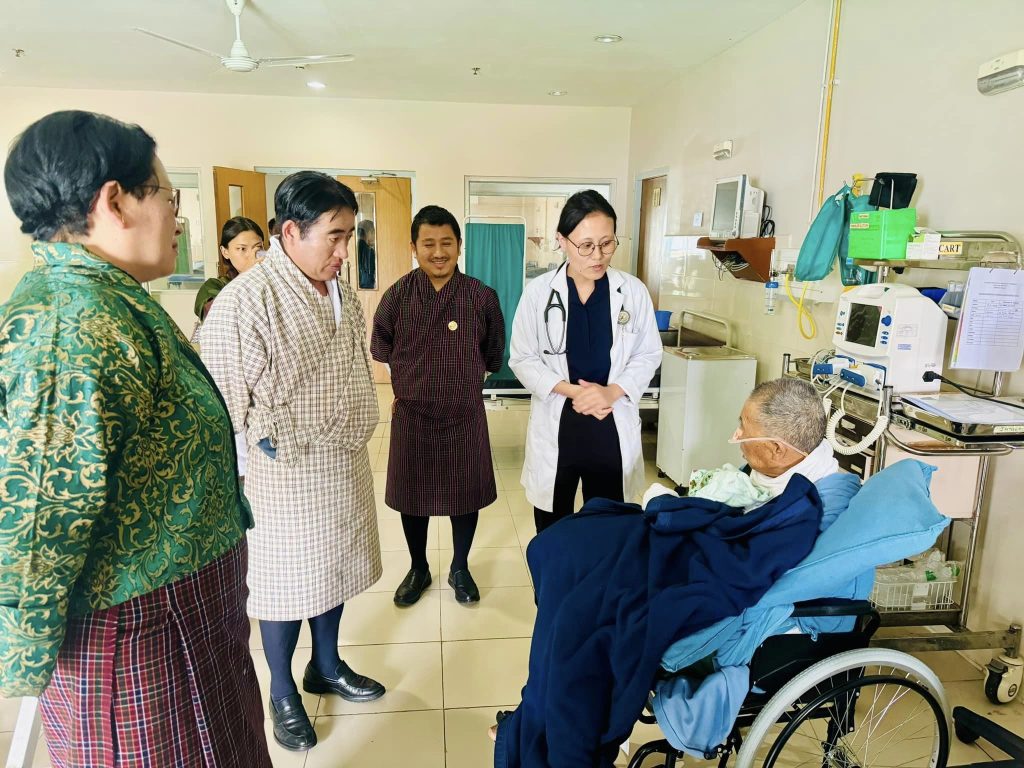
The members of the Social & Cultural Affairs Committee of the National Council, including Honorable Kesang Chuki Dorjee (Committee Chair) and Honorable Tshering (Dy. Chair), along with secretariat staff, visited to the Eastern Regional Referral Hospital. Their objective was to hold a consultative meeting with healthcare providers, aligning with the National Policy for Persons with Disabilities (2019). An extensive interactive discussion commenced with Honorable Dasho elucidating the purpose of their visit, seeking to understand the current landscape of healthcare provision for individuals with disabilities.
The Medical Superintendent presented an overview and current statistics, the existing health infrastructure, prevalent types of disabilities encountered, services currently offered, and the pertinent challenges faced. Among the commonly observed disabilities highlighted were physical disabilities, speech and hearing impairments, intellectual disabilities, and developmental delays and disorders. These insights underscored the multifaceted nature of the healthcare needs within this population.
The discussion highlighted and noted that individuals with disabilities encounter notable obstacles when accessing healthcare services. These challenges include the absence of disability-friendly amenities, a shortage of specialized personnel capable of delivering tailored services, inadequate provision of essential equipment and assistive devices, and a lack of funding for comprehensive awareness and advocacy initiatives.
Moreover, the meeting attendees recognized the pervasive issues of stigmatization and discrimination faced by people with disabilities, compounded by insufficient social support systems and the financial burdens associated with accessing healthcare services.
Moving forward, the healthcare workers emphasized on the necessity for a coordinated, multisectoral approach to address the complex needs of individuals with disabilities. Suggestions were put forth, including fostering greater collaboration and information-sharing among diverse civil society organizations, healthcare centers and various institutions. The honorable members also highlighted on the need to institute a certification process for people with disabilities by a board of medical doctors.
Later, the honorable members visited different units where services for people with disabilities are provided in the hospital.
According to Housing and Population Census of Bhutan 2017, 2.1% of the country’s population regardless of age and gender have some form of disabilities. Likewise, Mongar Dzongkhag has 397 people with some form of disabilities (all age groups) as per the records.






